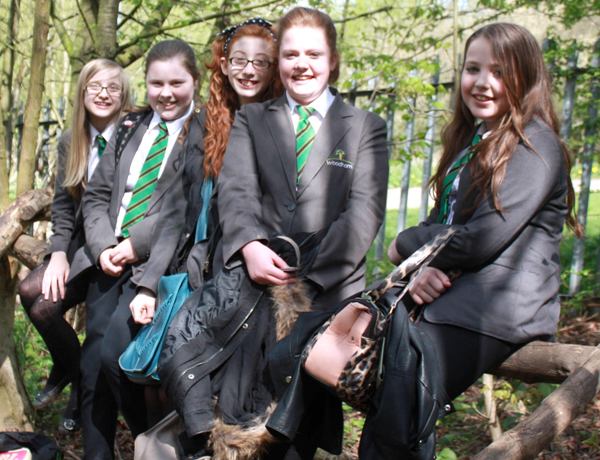The term home-learning has taken on a new twist thanks to an innovative partnership agreement between a local school and a prestigious international conservation group.
Students at Woodham are to be offered the opportunity to study wildlife conservation and management as an extra-curricular activity at the start of the next academic year, but, as luck would have it, they won’t even have to leave their home-turf to do it.
This is because the Academy is fortunate enough to occupy a large site on the fringes of that area popularly known as the burn, and has within its boundaries a rich variety of habitats regularly visited, and occupied by, a number of the nation’s favourite creatures, including foxes, moles and hedgehogs, and home to various wildflowers, native trees and shrubs.
Learners will be able to join a Wildlife Club in September. Once enrolled, these roving wildlife rangers will be encouraged to take up four challenges set by the John Muir Trust: to discover a wild place, to explore it, to conserve it and to share their experience of it with others.
By thinking of practical solutions to improve the environment for wildlife and recording their findings they will be able to access three levels of award with the trust: The discovery Award, the Explorer Award and the Conserver Award. In so doing, it is anticipated that they will acquire new practical-skills and develop a greater awareness and understanding of the world on their door-step.
The ambitious scheme will be supervised by Mr Heaven, who promotes literacy and reading across the school. He is excited by the prospect of his up-and-coming training with the John Muir Trust, and by the prospects the scheme presents for both the school and its learners: “Our school is extremely fortunate in having valuable resources at its fingertips”, says Mr Heaven; who was himself brought up in Newton Aycliffe.
“By combining the existing material resources we already have: broad-leafed woodland, hedgerows and grasslands, with the natural curiosity and ingenuity of our greatest resource – our learners, we are confident we can improve the outlook for both.”
When pressed about what the scheme might look like in reality, Mr Heaven is open-minded: “The John Muir Award takes an holistic approach to learning: it encourages participants to come up with their own ideas on how they might promote or protect the plants and animals which call this school home.” That, he said, might include learning to lay hedges, planting ‘dead’ borders or coppicing trees, growing a mini-wildflower meadow or manufacturing bird boxes, bat boxes and bumble bee hibernation houses.
“What could be better than using the skills you have learned at school to document wildlife movements, to sketch and paint resident flora and fauna, write a publicity leaflet, or make an information board for the benefit of local residents?”
Woodham Academy will begin implementing the scheme in the autumn term, and have promised to keep local residents updated throughout the coming year.
Woodham Students Study Wildlife Conservation










